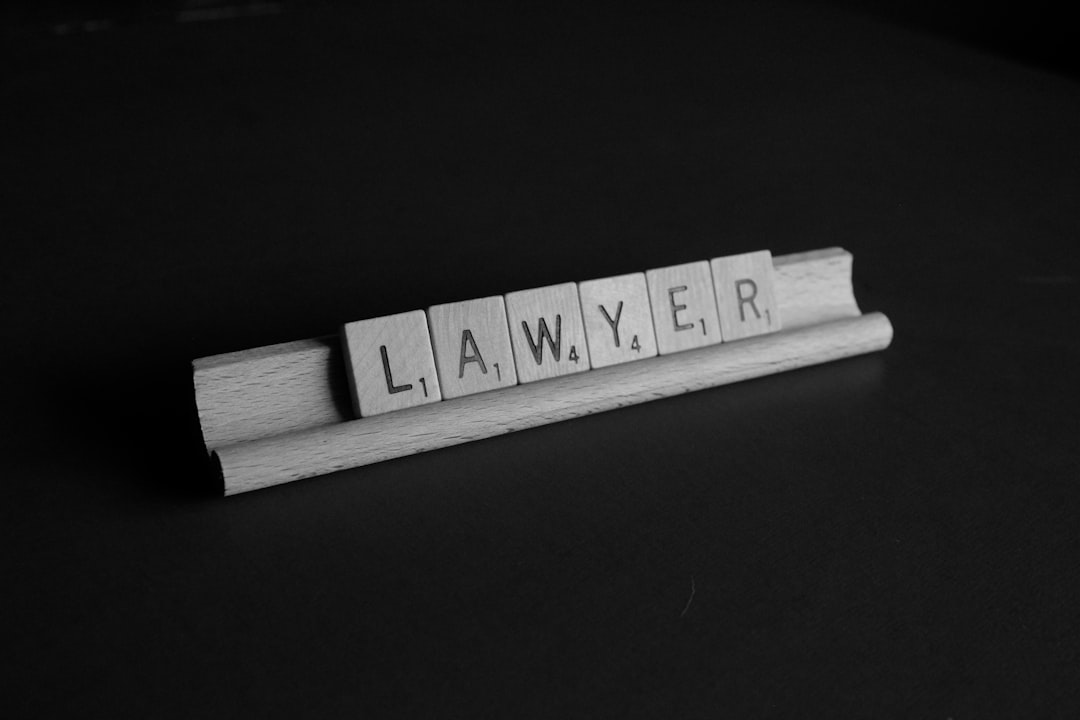Maryland's strict Do Not Call Laws protect residents from unwanted sales calls, with heavy penalties for violators. Law firms must adhere to these laws to avoid fines and maintain their reputation. Ethical telemarketing requires embedded organizational culture, regular training, compliance audits, and open communication. Respecting consumer choices is crucial for building trust, especially in regulated industries like legal services. Specialized resources are available for law firms expanding their reach on Maryland's Eastern Shore, ensuring compliance with Do Not Call Laws while protecting consumers from spam calls.
“Navigating the complex landscape of telemarketing in Maryland, particularly on the Eastern Shore, requires a deep understanding of state-mandated Do Not Call laws. This article guides law firms through this intricate web, focusing on ethical practices. We explore ‘The Role of Telemarketing in Legal Services,’ offering best practices to ensure compliance and avoid spam call regulations. From ‘Understanding Maryland’s Do Not Call Laws’ to ‘Building Trust with Prospects,’ we provide essential training strategies and resources tailored for the Eastern Shore market, empowering firms to excel while respecting consumer rights.”
Understanding Maryland's Do Not Call Laws: A Comprehensive Overview

In Maryland, including its Eastern Shore, telemarketing practices are subject to strict regulations aimed at protecting residents from unwanted and intrusive sales calls. Understanding the state’s Do Not Call Laws is essential for both telemarketers and those seeking legal counsel. These laws, enforced by the Maryland Attorney General’s Office, empower consumers to exercise control over their phone lines and significantly penalize violators.
Maryland’s Do Not Call Laws are comprehensive, prohibiting commercial telephone solicitations during specific hours and requiring businesses to honor consumer requests to stop calling. A ‘Do Not Call’ registration is readily available to residents, and any calls received from unregistered or unauthorized sources may result in legal action. For those facing spam calls or seeking guidance on compliance, consulting with a Do Not Call Lawyer Maryland or Do Not Call Attorney Maryland is advisable. Such legal professionals can offer expert advice, ensuring businesses navigate these regulations effectively while protecting consumer rights under the state’s Spam Call law firm Maryland and Do Not Call laws.
The Role of Telemarketing in Legal Services: Best Practices

In today’s digital age, telemarketing plays a significant role in legal services, allowing law firms and attorneys to reach potential clients efficiently. However, with great reach comes responsibility to adhere to strict do-not-call laws, such as those in Maryland. Failure to comply can result in hefty fines and damage to the firm’s reputation. Therefore, ethical telemarketing practices are paramount for any legal professional operating within the state.
Best practices include obtaining explicit consent from callers before engaging in marketing activities, implementing robust do-not-call lists, and ensuring all communications provide value rather than constituting spam. Lawyers and law firms in Maryland should remember that while telemarketing is a powerful tool, it must be used responsibly to respect client privacy and avoid unnecessary legal repercussions, as outlined by the Do Not Call Laws Maryland.
Training Strategies for Ethical Telemarketing: Creating a Compliance Culture

Training programs for ethical telemarketing in Maryland’s Eastern Shore should go beyond surface-level scripts and tactics. To create a compliance culture, these initiatives must embed ethical principles into the very fabric of an organization. This involves regular workshops and seminars that not only educate but also engage employees. Interactive sessions that role-play various scenarios help salespeople navigate complex situations, ensuring they understand the nuances of Do Not Call Laws Maryland, including restrictions enforced by the Do Not Call Attorney Maryland or Spam Call law firm Maryland.
Moreover, regular compliance audits and feedback mechanisms are vital. These processes ensure that employees stay informed about changing regulations, such as those governing who can be contacted and when. Encouraging open communication where questions and concerns can be raised without fear of reprisal fosters a culture of accountability. This, in turn, strengthens the organization’s commitment to ethical practices, making it less likely to face legal issues or complaints from clients, including Do Not Call Lawyers Maryland.
Building Trust with Prospects: Avoiding Common Telemarketing Mistakes

Building trust with prospects is a cornerstone of successful telemarketing, especially in highly regulated industries like legal services. One of the best ways to avoid common mistakes and foster trust is by adhering strictly to Do Not Call Laws in Maryland. Many consumers are protected under state laws that regulate when and how businesses can contact them, including restrictions on phone solicitation. Violating these laws through unwanted calls or spamming can not only result in hefty fines but also severely damage your reputation and erode consumer trust.
Maryland’s Do Not Call Laws cover both residential and business phone numbers, with specific rules regarding consent and opt-out options. A key mistake to avoid is presuming that all calls are welcome. Always verify the recipient’s willingness to receive calls, especially from law firms offering legal services. Additionally, ensure you have an effective system for managing opt-outs and maintaining accurate do-not-call lists. Remember, building trust means respecting consumer choices and preferences, ensuring your marketing efforts are welcomed rather than seen as intrusive or illegal.
Resources and Support for Law Firms: Navigating the Eastern Shore Market

The Eastern Shore of Maryland presents a unique market for law firms looking to expand their reach, especially in the realm of telemarketing. With a mix of rural and coastal communities, this region has its own set of challenges and opportunities when it comes to compliance with do-not-call laws, such as those enforced by the Federal Trade Commission (FTC) and the Maryland Attorney General’s Office. Law firms navigating this market must be adept at understanding and adhering to these regulations, particularly when dealing with calls to residential homes and businesses.
Resources are available to support law firms in their efforts to engage ethically and compliantly. The Maryland Bar Association offers workshops and webinars tailored to telemarketing practices, ensuring lawyers stay updated on the latest legal requirements. Additionally, there are specialized services that provide training programs focused on do-not-call laws, including those specific to the state of Maryland. These initiatives aim to foster a culture of ethical telemarketing, protecting consumers from spam calls and ensuring law firms maintain their integrity in a competitive market.






